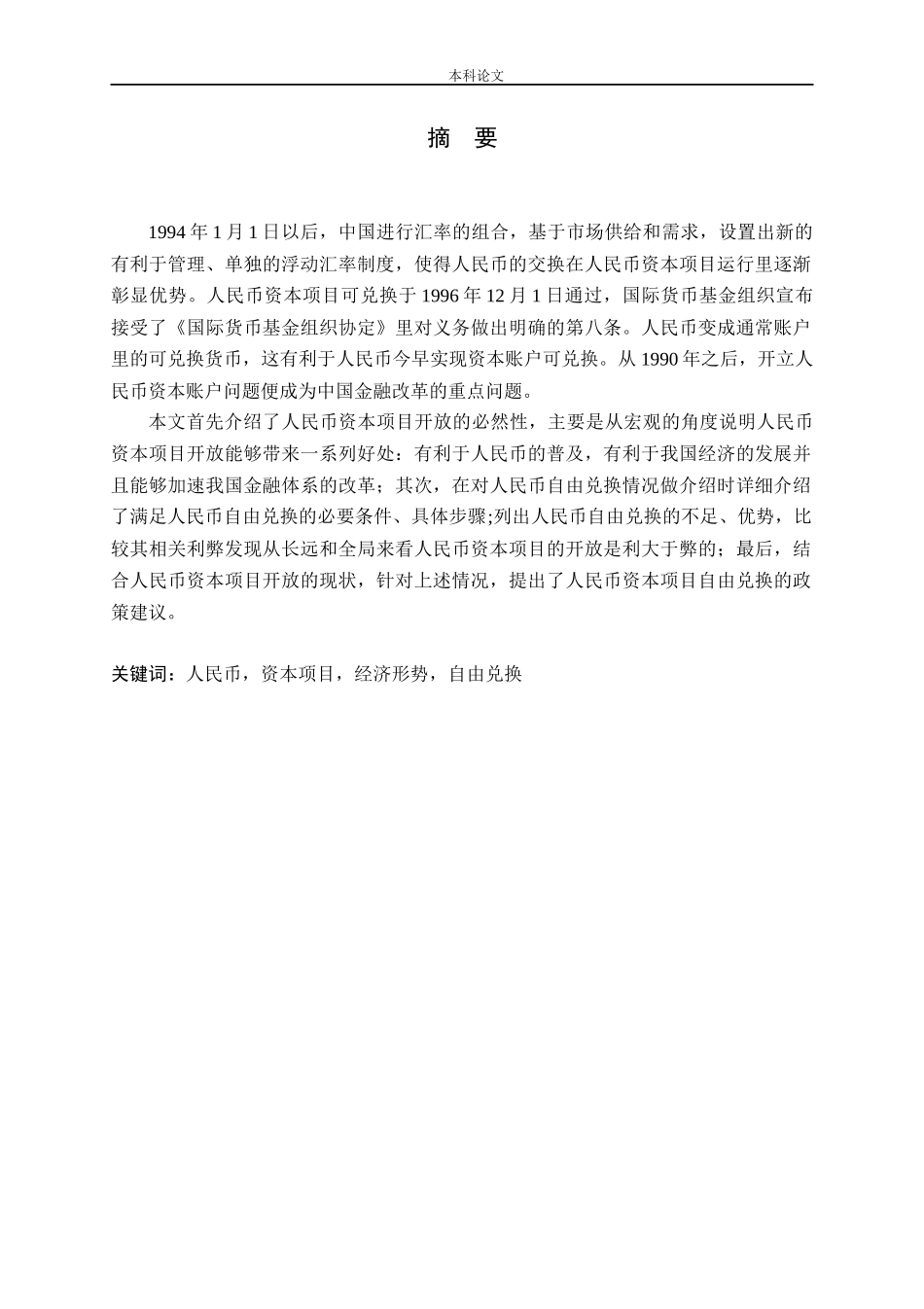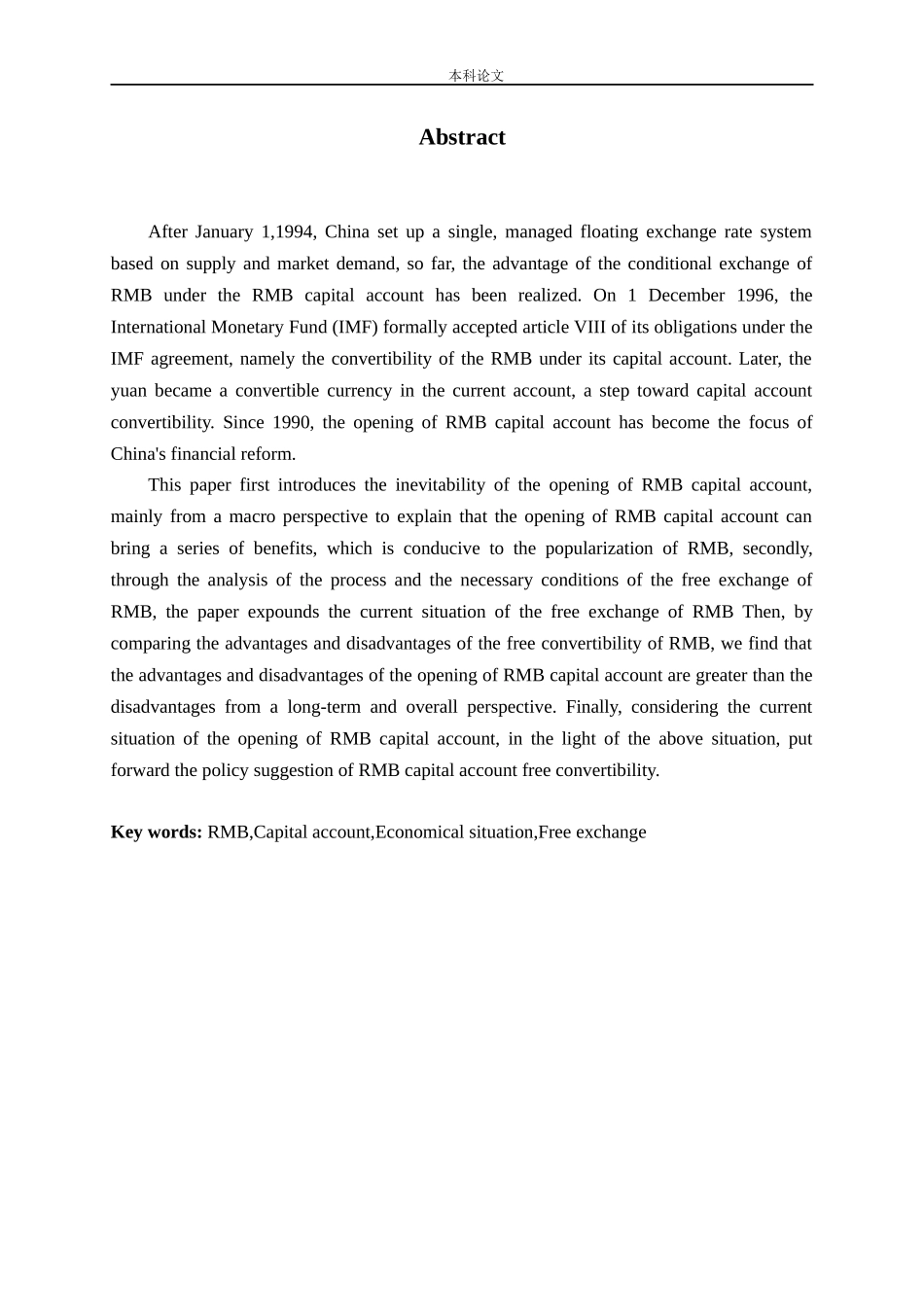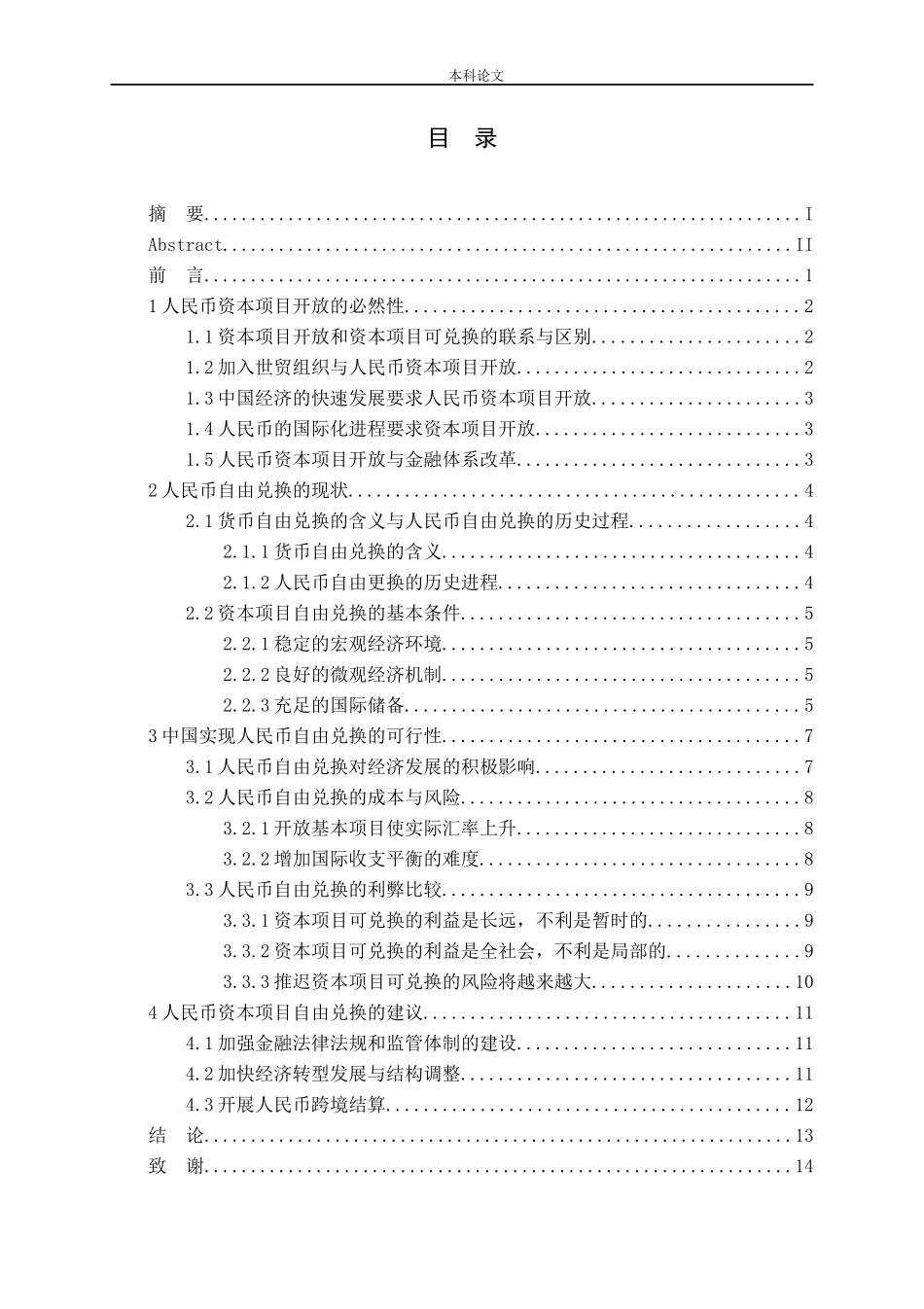本科论文摘 要1994 年 1 月 1 日以后,中国进行汇率的组合,基于市场供给和需求,设置出新的有利于管理、单独的浮动汇率制度,使得人民币的交换在人民币资本项目运行里逐渐彰显优势。人民币资本项目可兑换于 1996 年 12 月 1 日通过,国际货币基金组织宣布接受了《国际货币基金组织协定》里对义务做出明确的第八条。人民币变成通常账户里的可兑换货币,这有利于人民币今早实现资本账户可兑换。从 1990 年之后,开立人民币资本账户问题便成为中国金融改革的重点问题。本文首先介绍了人民币资本项目开放的必然性,主要是从宏观的角度说明人民币资本项目开放能够带来一系列好处:有利于人民币的普及,有利于我国经济的发展并且能够加速我国金融体系的改革;其次,在对人民币自由兑换情况做介绍时详细介绍了满足人民币自由兑换的必要条件、具体步骤;列出人民币自由兑换的不足、优势,比较其相关利弊发现从长远和全局来看人民币资本项目的开放是利大于弊的;最后,结合人民币资本项目开放的现状,针对上述情况,提出了人民币资本项目自由兑换的政策建议。关键词:人民币,资本项目,经济形势,自由兑换本科论文AbstractAfter January 1,1994, China set up a single, managed floating exchange rate system based on supply and market demand, so far, the advantage of the conditional exchange of RMB under the RMB capital account has been realized. On 1 December 1996, the International Monetary Fund (IMF) formally accepted article VIII of its obligations under the IMF agreement, namely the convertibility of the RMB under its capital account. Later, the yuan became a convertible currency in the current account, a step toward capital account convertibility. Since 1990, the opening of RMB capital account has become the focus of China's financial reform.This paper first introduces the inevitability of the opening of RMB capital account, mainly from a macro perspective to explain that the opening of RMB capital account can bring a series of benefits, which is conducive to the popularization of RMB, secondly, through...


